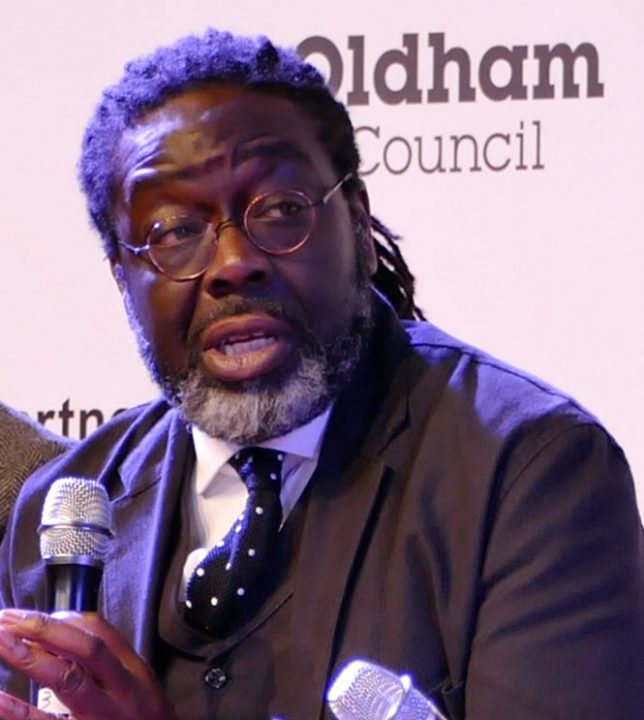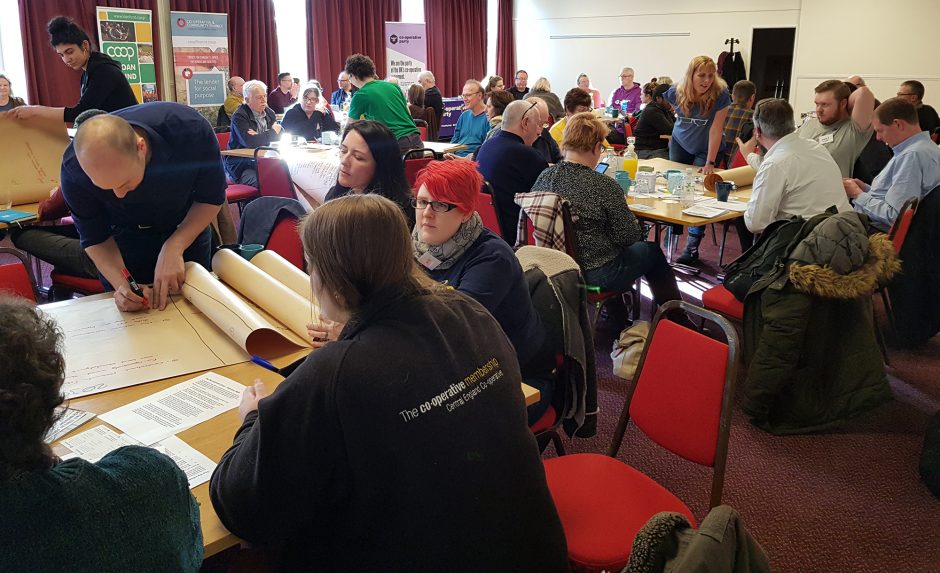Two events in February posed the question of where, exactly, do co-ops sit within the emerging new economy – and how can they make a meaningful contribution?
Speaking at the Growing the New Economy conference in Oldham, Neil McInroy reminded delegates that people should be at the centre of any conversation about economy. “Economics isn’t a natural science, it’s a social science,” he said. “We can construct it any way we wish. We shouldn’t be fitting social into the economy – the whole economy should be social. It’s relational, not transactional.”
Mr McInroy, chief executive of thinktank the Centre for Local Economic Strategies (CLES), believes current failures are because of how society is set up as an “extractive fossil economy”.
“Wealth is being extracted,” he said. “This is creating a huge pressure on social services, all areas are suffering under the yoke of this economy.” He wants to see a new economy growing around people, pleace and environment: “a new economic democracy where people have a genuine stake – not just as workers, but as owners too.”
Growing the New Economy, organised by E3M (an initiative that supports a group of leaders from UK social enterprises that trade in public service markets), brought together 250 key decision makers from local authorities, health and other local public institutions, leaders of co-operatives and social enterprises, funders and investors. Plenaries and workshops explored how the social economy can play a much more central role in the economic and community wellbeing of places across the country.
Participants heard what has worked (and what hasn’t) in different places. The aim was to help shape a future vision for place-based, co-operative and social enterprise innovation, supporting clear, viable alternatives to the traditional economic models and policies that have failed to serve people and communities in so many parts of the UK.
But there were clear challenges too. “We should start co-creation at neighbourhood level, use open-ended questions and listen to people who have been excluded,” said Karin Woodley, chief executive of Cambridge House, a Southwark-based centre fighting poverty and social injustice. “We’ve been here before. We need to stop tweaking with the edge of historical stuff and be open to new ideas and approaches.”
Listening was also one Lord Victor Adebowale’s rules of engagement. “We have to create a future economy that works not just for us, but for our children,” he said, speaking as chair of Social Enterprise UK. “But we can’t do it on our own, and we shouldn’t try to do it on our own. We have to do it with the people in our industry and communities, we have to engage them.”

In his experience, there are four rules to engagement. “The first thing we have to do is listen, but listening is really hard. If I tell you I’m listening, it’s meaningless unless you’ve got evidence that you’ve been heard. Secondly, there has to be a transfer of power from those that have it to those that don’t, such that they’re able to do something after the engagement that they couldn’t do before.”
Lord Victor, who is also a director of the Co-op Group, said the third rule is that whatever is produced must be produced with people, not for them. “This is just common sense,” he said. “We have to create services, jobs, businesses, with people, not just for them. And finally the design of this new economy has to be recognisable for people outside this room. Otherwise, it’s not going to work.”
Disinterest, disengagement, disillusion and cynicism with the current business model is rife, he added, but there are green shoots that need to be nurtured. “We’re at the right place, doing the right things with the right people. But let’s make no mistake: we can’t fail, because there isn’t there isn’t a plan B. The new economy has to work, because the old one doesn’t.
Over the past 20 years in particular, the world – and the co-operative movement – has seen some huge changes. Bearing this in mind, what can we in the co-op movement do to make 2040 something that is truly co-operative? This was the challenge set by Future Co-operatives: Twenty/Twenty Vision Conference. Hosted in Birmingham by Birmingham by Co-operative Futures, a business development consultancy specialising in co-operative, mutual and community led businesses, it set the challenge of looking at innovative co-operative responses to challenges in certain sectors, including housing energy, care, food, community spaces, technology and transport.

On care, for example, the challenges are an ageing population, the pension age going up, families not being able to afford to stop working to provide care, a lack of government funding and the recruitment and retention of staff. Co-ops are already providing some solutions to this (see p36-39), but there are bigger questions to be answered around partnership working, co-housing, re-weaving communities and meeting the wider costs of care.
The integration of community groups is vital for sustainable community spaces, too. Delegates heard how many community groups run co-operatively without knowing they are in those structures; which points to a need for education about co-ops.
On homelessness and housing security, co-ops can challenge the negative perceptions of shared accommodation, and address issues of purchasing land and raising capital. Delegates agreed that there needed to be a central place where information on setting up, joining and maintaining housing co-operatives can be accessed and suggested mechanisms for individuals to invest.
With the gig economy and remote working on the rise, there are also growing challenges around isolation and skills gaps. Delegates agreed that co-ops can provide fairer wages and a sense of community through worker unions – while employee buyouts can increase the number of worker-owned co-operatives. But the question remains how co-ops can educate for a future when we don’t know what the future will be.
“We need to be thinking about how we adapt and how we evolve forwards, with the circumstances that we are presented with,” said Dr Peter Lee from the Centre for Urban and Regional studies at the University of Birmingham. But when planning a future, like Lord Victor, he cautioned about getting engagement right.
“The future can be quite a bourgeois structure, because it’s often being designed by people who have certainty about the future,” he said. This certainty could be a retirement plan or housing assumption. “That embeds into it a certain kind of a view of the world. There are people in this city, for whom ‘future’ is just the end of the day, just getting food on the table.”

